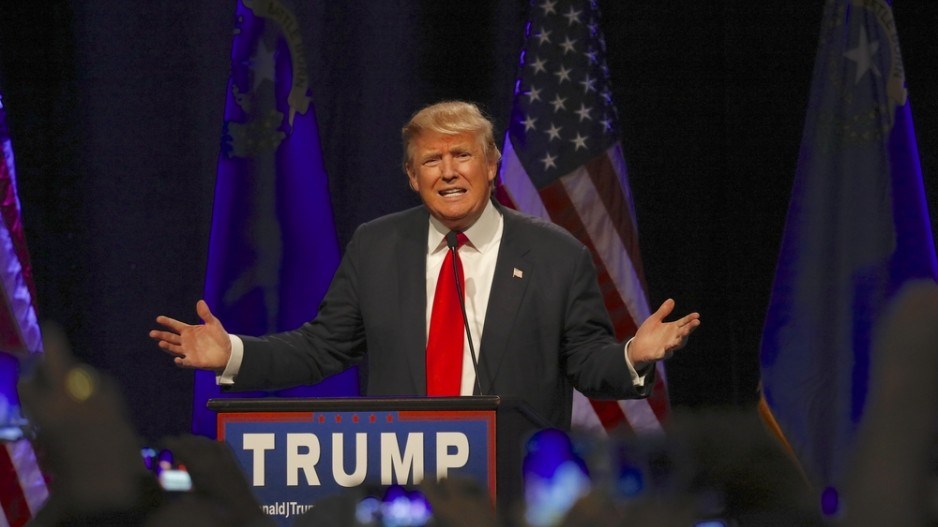The election of Donald Trump could offer Canada a rare opportunity to reverse the southward brain drain of tech and other high-demand workers and to better compete for international talent entering our universities.
With the energy industry slumping into a third year and the Canadian economy as a whole going sideways, growth in the high tech and education sectors could provide a meaningful boost.
It remains to be seen how far U.S. president-elect Trump and his emerging hard-line cabinet will go to fulfil election promises he made – to take a firmer stand on immigration, tear up international trade deals and erect walls against the outside world – but some damage has already been done.
The mere prospect of Trump becoming president led to warnings from the tech community that he would be “a disaster for innovation.” According to an open letter signed by senior executives at several tech companies, “His vision stands against the open exchange of ideas, free movement of people, and productive engagement with the outside world that is critical to our economy – and that provide the foundation for innovation and growth.”
No doubt Trump’s statements have many foreign workers, documented or not, feeling very uncomfortable – and many potential immigrants second-guessing whether they wish to live, work or study in America.
This is potentially disastrous for the information technology (IT) sector in particular, with more than half a million unfilled jobs across all sectors of the U.S. economy, according to the White House TechHire Initiative. Some 80,000 tech workers are admitted on temporary H-1B visas, and residents of Canada and Mexico are admitted under NAFTA – both avenues now under threat by a Trump administration.
A great loss of talent could result.
“Immigrants have started more than half of America’s startup companies valued at $1 billion or more, and are key members of management or product development teams in over 70 per cent of these companies,” the National Foundation for American Policy reported.
“It would really hurt the country in a profound way,” should Trump’s threats come to pass, BlackBerry CEO John Chen told Bloomberg Businessweek. He should know – Chen, who lives in Silicon Valley, emigrated to the U.S. from Hong Kong as a student.
North of the border, tech is booming. The tech sector in some B.C. communities is growing so fast that industry associations are having difficulty keeping track, according to the Globe and Mail. The report said that the sector’s 75,000 employees in the Vancouver region now outnumber those involved in oil and gas, forestry and mining-related activity.
One of the attractions is the large labour pool of university-educated candidates, which points to our other opportunity: to attract international students who might suddenly be looking at multicultural, tolerant and relatively open Canada in a new light. Canada’s post-secondary system is an often-overlooked source of wealth creation. It has long underperformed English-speaking rivals in the U.S., the United Kingdom and Australia in attracting international talent.
Our universities and colleges are economic heavyweights unto themselves, creating $1.36 for the Canadian economy for every $1 invested or $55 billion annually in economic activity, says the Conference Board of Canada.
International students play a huge value-added role, spending an estimated $8.4 billion and helping sustain 86,570 jobs as of 2012, according to Foreign Affairs and International Trade Canada.
“International students also help address the shortages of skilled labour that diminish Canada’s long-term capacity for research and innovation, and contribute to the ‘innovation gap’ identified in the 2011 Jenkins Report as a critical threat to our future prosperity,” it stated.
Some heavyweights in the tech sector seem to see the opportunity.
“Is this the reversal of the talent diaspora that Canada has historically seen and beginning of the U.S. brain drain?” tweeted Ryan Holmes, founder of Vancouver social media platform success story Hootsuite, after the election.
At a time when the U.S. appears destined to return to a past of thickened borders, smokestack industry and an isolationist America-first mindset, it behooves Canada to do the reverse and embrace the high-tech, creative and open economy of the future. •
Maurice Smith is technology editor at JWN Energy.




